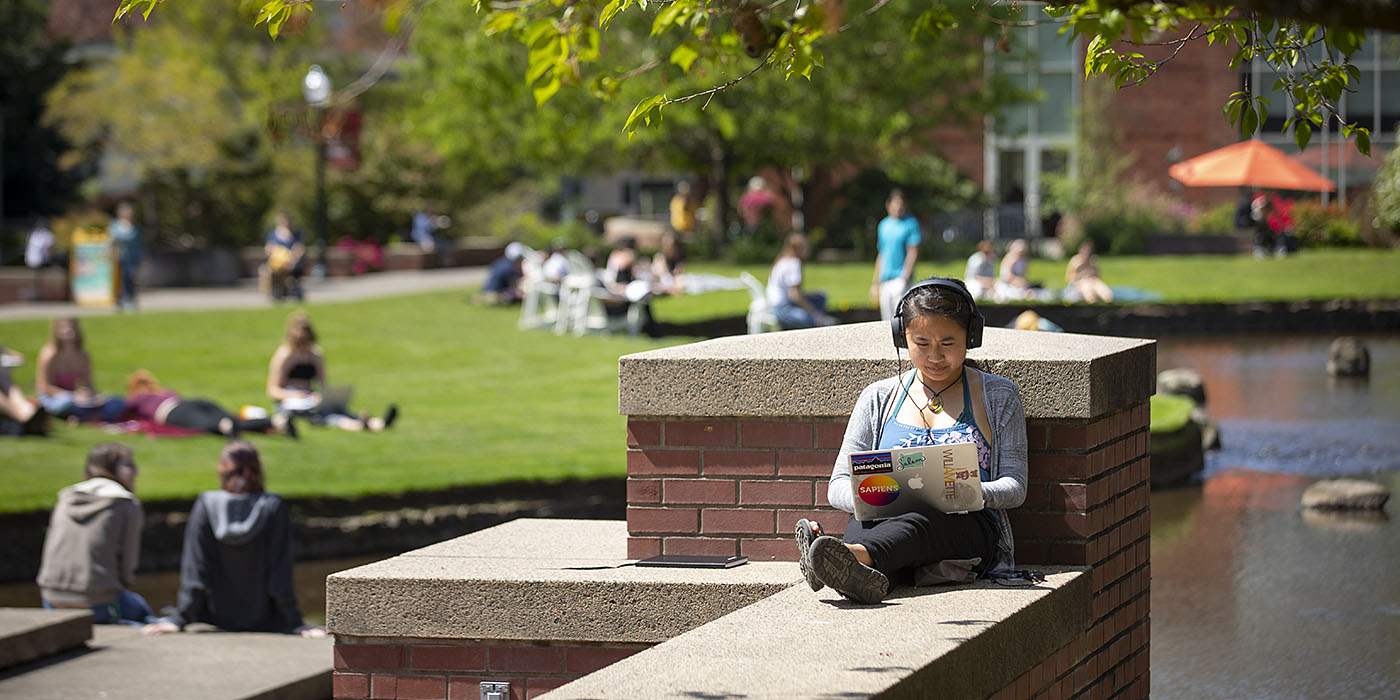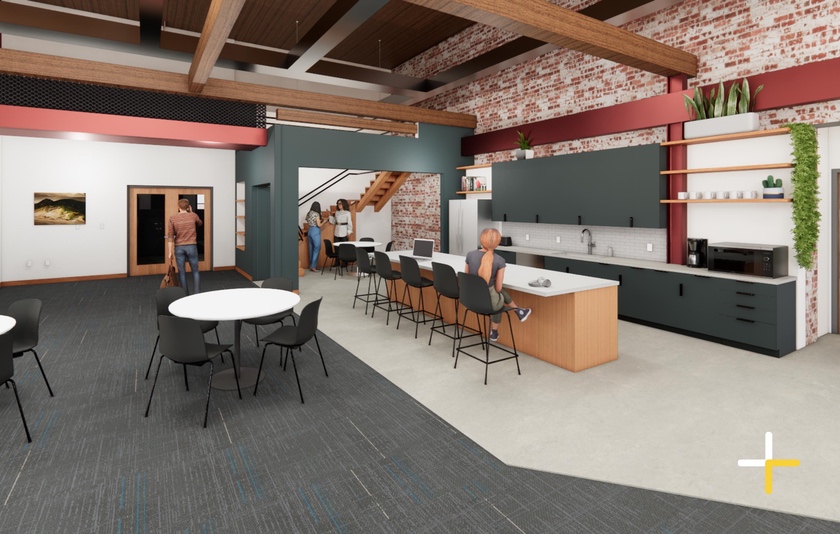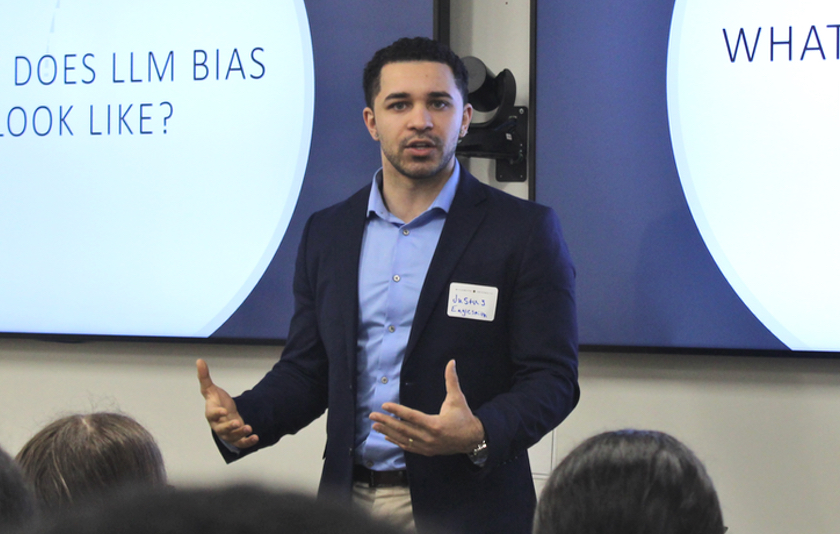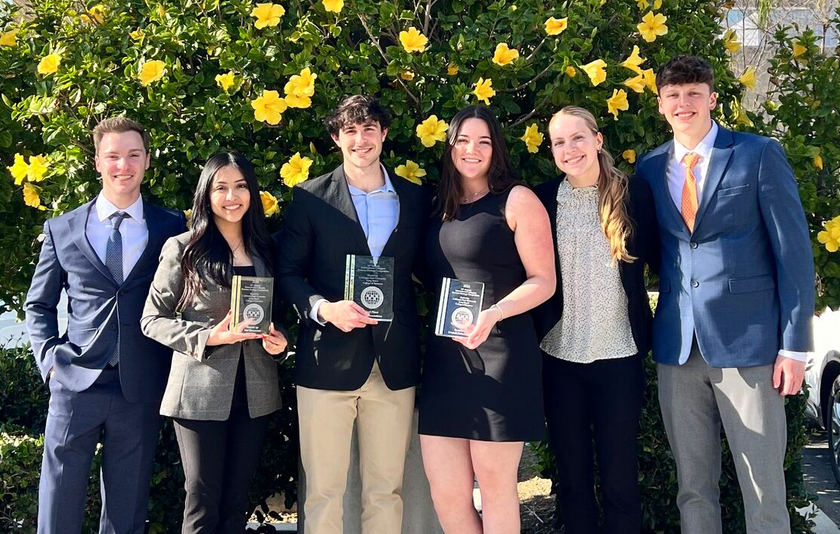Two Willamette students recently earned second place in an international data science competition — a success the university hopes to see more of in the future.
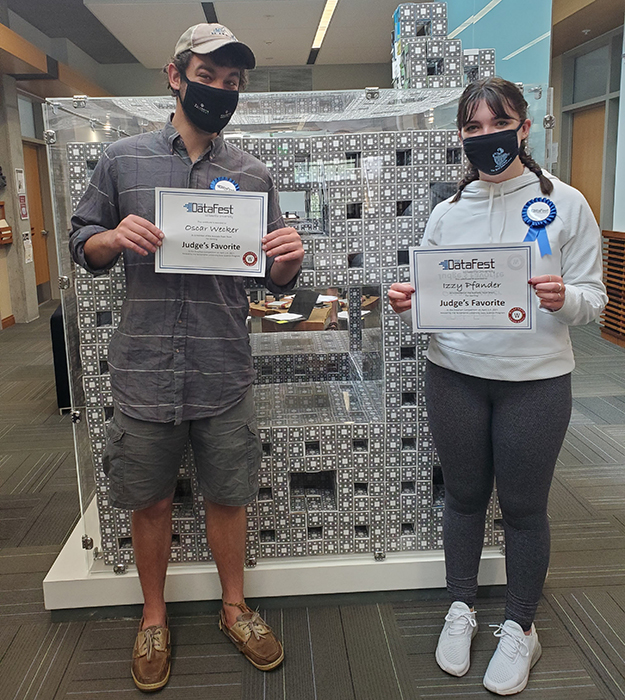
Oscar Wecker ’22 and Izzy Pfander ’21 — an anthropology major and environmental science and computer science double major, respectively — gained recognition in July for their exemplary use of data in the International Statistical Institute’s (ISI) Florence Nightingale Prize for Data Visualization. The award was given as part of the International Year of Women in Statistics and Data Science.
The team first presented its work in May at Willamette’s inaugural DataFest, a 48-hour statistical analysis competition for undergraduates nationwide through the American Statistical Association (ASA). Only finalists from participating DataFest colleges were eligible for the Florence Nightingale prize, named after the 1800s female pioneer of statistics and data visualization.
DataFest functions similar to hackathons: teams typically work together on massive data sets throughout the night and cover relevant topics such as increasing voter turnout.
At Willamette’s event — its first time hosting — students examined survey data from the Rocky Mountain Poison and Drug Safety Center to discover and identify patterns of drug use and misuse. Pfander and Wecker competed virtually against 42 undergraduates from Willamette, Reed College and Portland State University. Graduate students from the master of science in data science program mentored teams and helped create tutorials for the undergraduates.
For their presentation, Pfander and Wecker analyzed how topography and elevation change in the U.S. affected illicit drug use in 2019. This was built on a theory originating from political scientist and anthropologist James C. Scott, who found populations in higher elevations in Southeast Asia are more likely to resist government control because of the difficulties elevation and mountainous terrain posed to governance. The pair also used spatial relationships and prediction algorithms to discover how drug use was distributed geographically as well as how some illicit drug use can predict other usage.
Wecker said he enjoyed the event’s spontaneity and time constraint. Rules don’t always crush creativity, he said, and sometimes they force you to think outside of the box.
“Hackathons and competitions like this are low-risk, fun and a great way to break into a project or idea you never would have thought of,” he said. “Even if you aren’t able to produce any concrete results over the time period, you can still do surprisingly well in these competitions and learn a lot.”
Data challenges hold value beyond college, too. Wecker, who along with Pfander and two other Willamette students won the 2019 Lewis and Clark Hackathon, said he wants to continue working with data in the field of human and culture-related research.
“I’m especially interested in attempting to quantify usually unquantifiable things, and some of this can come in the form of algorithms that can read emotions, natural language processing and of course, information like survey data,” he said. “Data ethics is also very important as well.”
Albaugh Assistant Professor of Statistics Heather Kitada Smalley, who nominated Wecker and Pfander for the Florence Nightingale prize, introduced data challenges to Willamette. In 2019 and 2020, she mentored students at the ASA Fall Data Challenge — Willamette teams won Best Visualization both years — and organized the university’s DataFest.
Transformative and engaging learning experiences like these are a hallmark of Smalley’s classes, where students develop skills in statistical analysis and critical thinking by working on real data sets and study statistical programming language “R." Students have also participated in DataFest in place of a midterm, another example of Smalley’s holistic approach.
In the future, she hopes to hold DataFest every year as an event to build a data science community across schools in the Pacific Northwest.
“I’m really passionate about getting students involved in real world data analysis and having them see how the skills they learn in the classroom translate into interesting problems,” she said.
Learn more about data science at Willamette.

